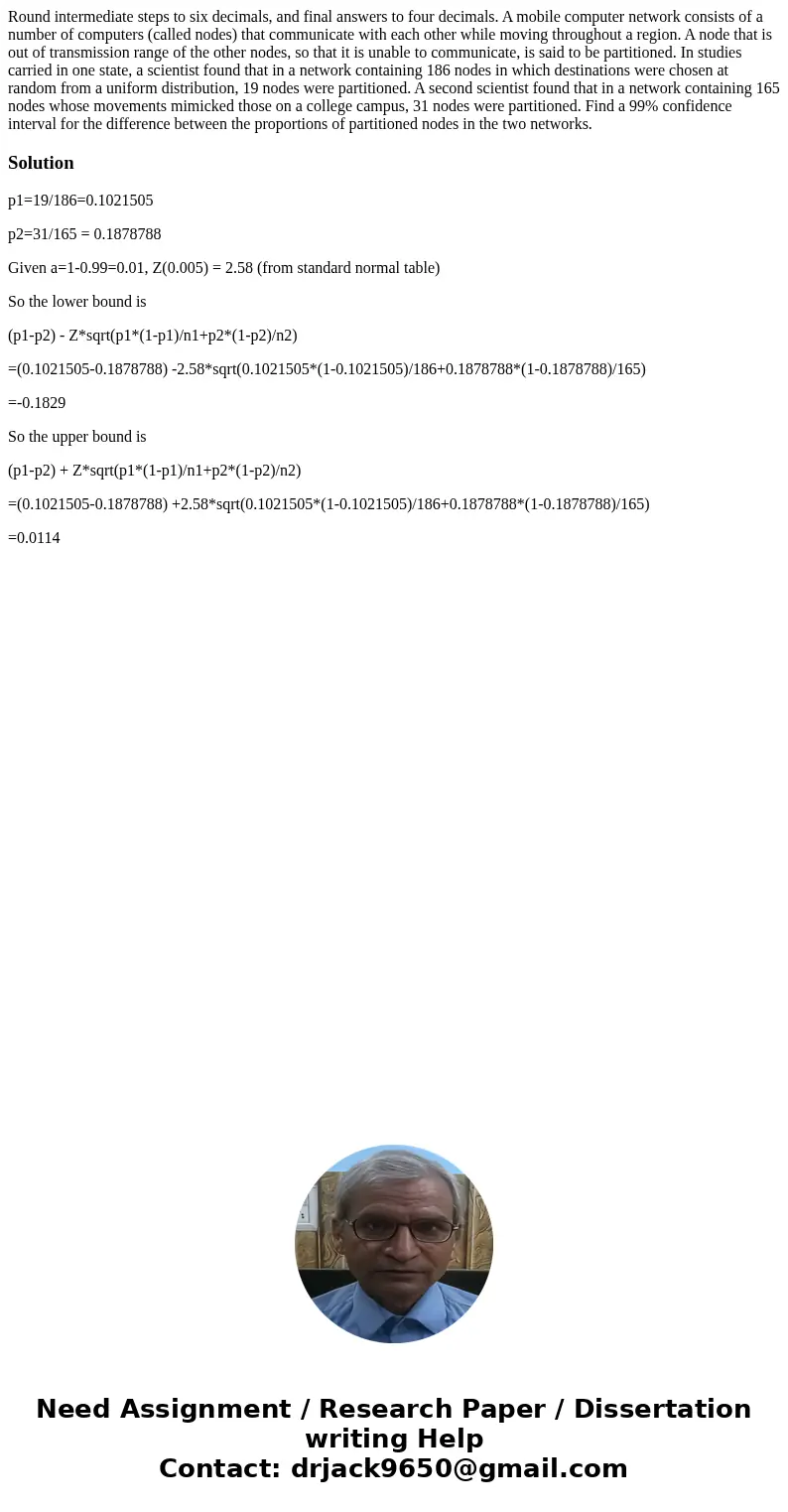Round intermediate steps to six decimals and final answers t
Round intermediate steps to six decimals, and final answers to four decimals. A mobile computer network consists of a number of computers (called nodes) that communicate with each other while moving throughout a region. A node that is out of transmission range of the other nodes, so that it is unable to communicate, is said to be partitioned. In studies carried in one state, a scientist found that in a network containing 186 nodes in which destinations were chosen at random from a uniform distribution, 19 nodes were partitioned. A second scientist found that in a network containing 165 nodes whose movements mimicked those on a college campus, 31 nodes were partitioned. Find a 99% confidence interval for the difference between the proportions of partitioned nodes in the two networks. 
Solution
p1=19/186=0.1021505
p2=31/165 = 0.1878788
Given a=1-0.99=0.01, Z(0.005) = 2.58 (from standard normal table)
So the lower bound is
(p1-p2) - Z*sqrt(p1*(1-p1)/n1+p2*(1-p2)/n2)
=(0.1021505-0.1878788) -2.58*sqrt(0.1021505*(1-0.1021505)/186+0.1878788*(1-0.1878788)/165)
=-0.1829
So the upper bound is
(p1-p2) + Z*sqrt(p1*(1-p1)/n1+p2*(1-p2)/n2)
=(0.1021505-0.1878788) +2.58*sqrt(0.1021505*(1-0.1021505)/186+0.1878788*(1-0.1878788)/165)
=0.0114

 Homework Sourse
Homework Sourse